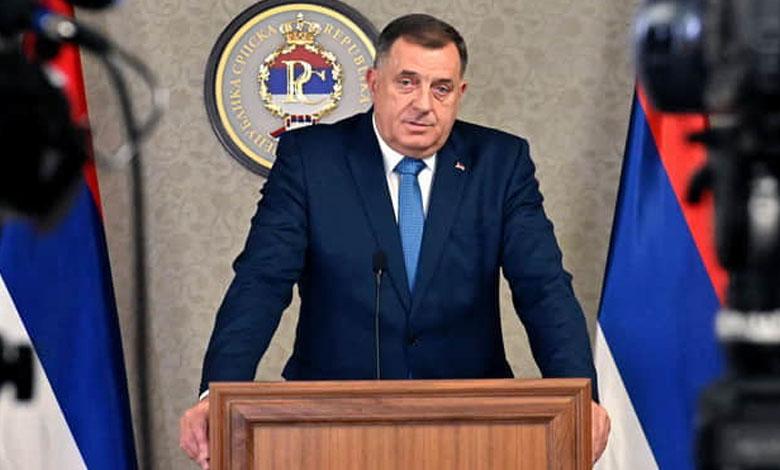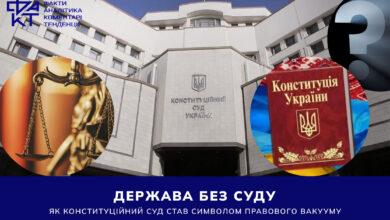The West’s Balkan Challenge: What Milorad Dodik’s Sentence Means

The leader of Serbian nationalists in Bosnia, Milorad Dodik, on Wednesday condemned up to twelve months of imprisonment, obliging keep the position of president of the region for six years for ignoring the decisions of the international representative.
From a legal point of view, Dodik’s sentence is fully justified. After all, his decision to legitimize laws that contradict jurisdiction of the Constitutional Court and the International High Representative in Bosnia, directly undermined Dayton Peace Agreement. The latter is the cornerstone of Bosnia’s state system, and its violation cannot remain without consequences. This precedent demonstrated that even high-ranking officials cannot act outside the law.
The legal aspect of this sentence is not just a question of the deserved punishment of a politician, but a test of Bosnia and Herzegovina’s ability to ensure the rule of law in the face of constant pressure from separatism. This trial has implications for the entire region, which is still balancing between a fragile peace and the threat of a new conflict.
But legal arguments change little here. Dodik and his allies countered that it was political persecution, and the Kremlin predictably picked up on that rhetoric, calling the sentence “a tool of Western pressure.” Moscow clearly demonstrates that Dodik remains its man, and his problems automatically become part of Russia’s global confrontation with the West. Belgrade acts more subtly – it maneuvers between the West and traditional allies, but it also plays along with Dodik, because this is part of its own game in the Balkans.
The disgraced leader of the Serbian nationalists himself is acting aggressively – declaring his intention to block the activities of state bodies in Republika Srpska. This is already an open challenge to the central authorities in Sarajevo. There are two options for the development of events: either he will receive political asylum in Russia alongside Yanukovych and Assad and will become another tool of the Kremlin, or Serbia will activate its political and power structures to protect his regime.
The verdict of Milorad Dodik is an indicator of the extent to which the West is ready to resist Russian influence
The story of Milorad Dodik is not just another episode of Balkan politics, but a symptom of deeper European processes. We see how autocratic leaders question the rule of law, assert the “right of the strong”, using nationalism as an ideological weapon, and the West hesitates for some time, trying not to provoke a new conflict. But it is precisely this indecision that encourages those who gamble on the destruction of institutions.
A big flame starts from a small spark, and what appears to be a regional crisis today may become part of a wider conflict tomorrow. If we consider the Kremlin’s hybrid war as part of its grand plan to intervene in the West, then what role can it play to play Moscow’s efforts to protect the leader of Serbian nationalists?
Can Dodik appeal the verdict? Certainly. And he will definitely take advantage of this opportunity. Legally, he has a chance to avoid real imprisonment, simple having paid fine. But the main threat for him is not so much a prison term as a potential ban on political activity. This is a serious challenge.
Does this mean that Dodik will leave politics? It is extremely doubtful. Rather, he will adapt, using traditional tactics – he will play the role of “victim of political repression”. His team is already actively promoting this narrative among Bosnian Serbs, and Moscow and Belgrade are providing him with the necessary informational support. This only strengthens his position as the leader of Serbian nationalism, regardless of the legal outcome of the case.
But the key question is much broader: what does this verdict mean for the rule of law in Bosnia? If the state proves that court decisions are implemented regardless of political pressure, it will become a very relevant historical precedent and a signal for all those who play separatism. If Dodik escapes punishment and continues his activities, it will demonstrate the weakness of Bosnian institutions and pave the way for further escalation.
Does this mean that the Balkans are once again on the brink of a major war like the 90s? Not yet. But the risk of local clashes that could turn into a serious crisis is quite real. Dodik is playing on escalation, Moscow supports his confrontational course, and Serbia, although not acting openly, maintains room for maneuver.
This situation is part of the global confrontation between Russia and the West. The Balkans are once again becoming the arena of the struggle for influence, and so far the Kremlin is showing readiness to go all the way. The West is forced to react, because any weakness in this region will be perceived as another defeat.
Dodik’s political career
In a certain sense, the political fate of Milorad Dodik is quite typical for a political veteran who evolved from a reformer to a classic pro-Russian populist. In the 1990s, he behaved as a moderate leader who could counter nationalist movements in Bosnia and Herzegovina. The West saw in him a chance for democratic changes, supported his government, including financially. But Dodik very quickly proved that for him ideology is only a tool for maintaining power.
Returning to the post of Prime Minister of the Republika Srpska in 2006, he succeeded to a completely different game. His new rhetoric became nationalism, division and open calls for secession from Bosnia. And here he found a new ally – the Kremlin. Russia supports his policies, and he supports the Kremlin, including aggression against Ukraine.
In recent years, Dodik has used pro-Russian rhetoric to justify his anti-Western stances and undermine Bosnian state institutions. His regular meetings with Putin are not hidden demonstration that the Kremlin supports his course to weaken Bosnia and Herzegovina. Russia has long exploited Serbian nationalism as a lever to destabilize the region, and this fits perfectly into its overall geopolitical strategy.
Serbia is more cautious, but the point remains the same. Aleksandar Vučić is forced to balance between his obligations to the EU and the desire to maintain control over Serbian communities outside Serbia. His support for Dodik is a way to maintain influence in Bosnia, block Sarajevo’s Euro-Atlantic integration and show the Serbian electorate that Belgrade is not giving up. This is a classic policy of hybrid influence, where official statements and real strategy can be diametrically opposed.
This story is not only about the leader of Serbian nationalists
It is about whether Bosnia and Herzegovina can withstand political revanchism and external pressure. Dodik is another politician who does not recognize the independence of the judiciary. For him, justice is a tool in the hands of his opponents. Therefore, he not only refuses to recognize the verdict, but also tries to subordinate the entire judicial system of the Republika Srpska to himself.
And this approach is not unique: similar scenarios small a place in Poland where they tried to subordinate the judicial system to the executive power. We see this in Hungary, where Orbán is trying to turn state institutions into a mechanism for strengthening his own regime. Dodik only continues this trend, but does it even more openly, because his strategy is open separatism.
Dodik’s refusal recognize the verdict would not have been so dangerous if it were not for his ability to mobilize the Serbian population on the basis of nationalist rhetoric, because he presents himself not as a corrupt leader who was convicted of crimes against the state, but as a “defender of the Serbian people” who allegedly became a victim of a “conspiracy of the West”.
This is a classic scheme used by all authoritarian leaders, from Putin to Lukashenka. And worst of all, it works. There is no unity among Bosnian Serbs regarding Dodik, but many believe that he is not being persecuted for his crimes, but for his stance.
Dodika’s case is not just a story about one separatist politician. This is a test for all of Europe: will democratic institutions be able to protect the rule of law, or will authoritarian tendencies, reinforced by external interference, continue to gain strength? His case goes far beyond the borders of Bosnia and Herzegovina, because the issue is not only the fate of one politician, but the ability of the state and the international community to defend legitimacy in the face of political revanchism. If Dodik can avoid the consequences of his course, it will send another signal to similar politicians across Europe: the rules can be ignored if you have strong, authoritarian allies.
… However, the very context in which this process takes place makes the situation even more tense. The political system of Bosnia and Herzegovina is an explosive mechanism that maintains a precarious balance between ethnic groups. Any disturbance of this balance could lead to destabilization, which, in turn, would have significant consequences for the whole of Europe. How strong is this mechanism? Will he be able to withstand another blow? And most importantly, will Milorad Dodik remain in power despite the verdict?
These issues are directly related to the future stability of the Balkans. Dodik’s sentence is not just a legal decision, but a political precedent that can change the balance of power in the region. How will Belgrade, which has long supported the Bosnian Serbs, react? What position will Moscow take, for which Dodik is an important element in the destabilization strategy? Will the West have enough political will to defend its principles?
Next time, we will take a closer look at these aspects: we will explain how the political system of Bosnia and Herzegovina works, what risks it carries, and whether this verdict could become a trigger for a new wave of tensions in the region. We will also analyze whether Dodik has a real chance to retain his power and what signals his case sends to the whole world – both for allies and opponents.
Tetyana Viktorova





